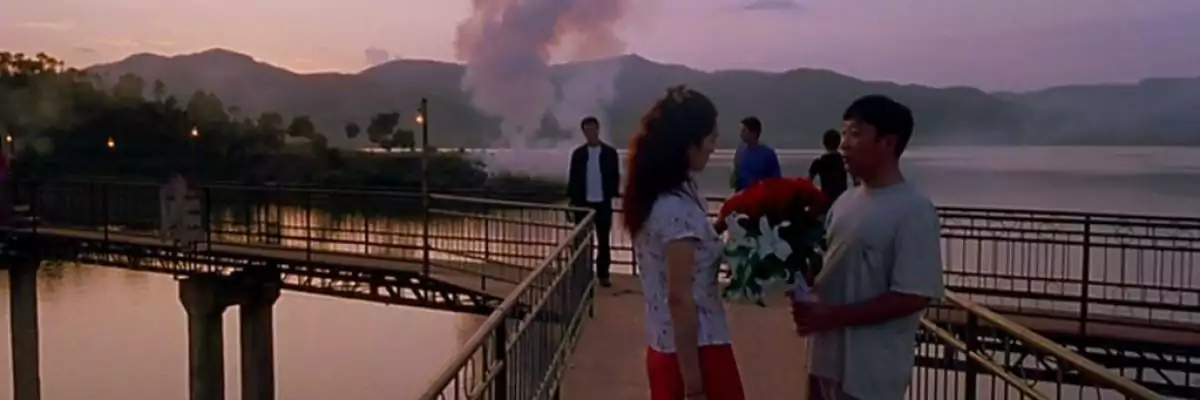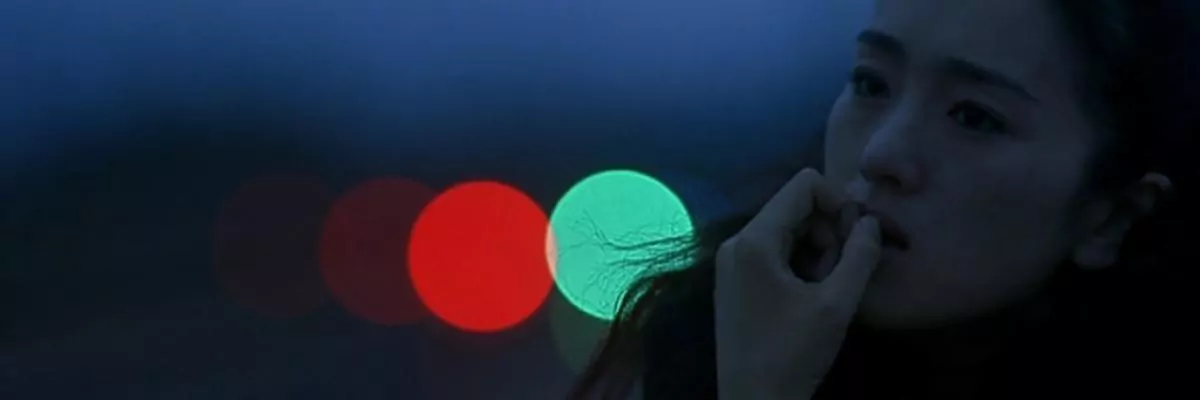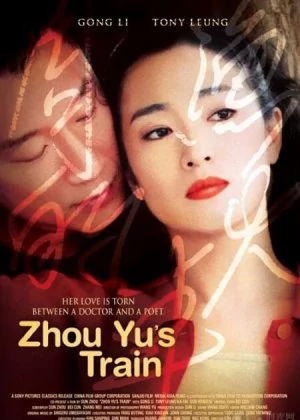Zhou Yu's Train
Back in the early 00s Chinese cinema was finding itself at a turning point. After being dominated for years by rural dramas sporting strong social themes, more modern/urban-themed films were starting to find their way to the public. Zhou Sun's Zhou Yu De Huo Che [Zhou Yu's Train] was one of the early examples of this change of pace. When I sat down to revisit Sun's film I was curious to see how well it had survived 15 years of Chinese cinema renaissance.

The first time I watched Zhou Yu's Train my knowledge of Chinese cinema was practically nil. I remember watching the film for the first time, wondering to myself when Tony Leung would finally show himself. I was completely unaware of the fact that there were two popular Chinese figures going by the name of Tony Leung (three if you count director Siu Hung). The difference between Ka Fai and Chiu Wai meant absolutely nothing to me. That's at least one thing that didn't bother me this time around.
I'm still not quite sure how Zhou Yu's Train landed a local release, though like most Asian releases back then it was probably a combination of festival recognition and sheer luck. The global interest in Asian cinema was starting to boom around that time and I remember watching whatever I could get my hands on. By modern standards Zhou Yu's Train is a pretty simple romance, enhanced by subtle artistic choices and a slightly convoluted plot. While it inevitably lost a little of its initial impact, it's still a beautiful film though.
The story follows Zhou Yu, a young vase paintress who becomes enamored by a budding poet (Chen Qing). He lives quite far away from her, so Yu ends up travelling the distance by train. Their relationship is passionate but unstable and the long train ride gives other interested parties plenty of opportunities to steal Yu away from her poet. Zhang Qing is the most persistent of the bunch and his advances start to pay off when Chen's career as a poet fails to take off.

Visually the film is on par with its peers. That means strong use of color and lighting, some very nice compositions and a couple of attractive tracking shots. Sun has a broad arsenal of visual tricks, but he uses them sparsely and wisely. He may lack a clear individual style, at least based on what he puts on display here, but Zhou Yu's Train looks beautiful from start to finish and that's a definite plus for a romantic drama with slight artistic pretenses.
The music is by Shigeru Umebayashi, one of Japan's most famous soundtrack composers. It's a solid, fitting soundtrack, but at the same time it's also pretty safe and familiar. The score consists of classic compositions, mostly dominated by piano and violin work. It's atmospheric and gracious, on the other hand it's also exactly what you'd expect from a film like this, almost to the note. A slightly more daring soundtrack would've been nice, but that doesn't seem to be part of the Chinese film DNA.
Zhou Yu's Train leans heavily on its central trio of actors. Tony Leung (Ka Fai) and Honglei Sun are both great as the competing guys, but it's Gong Li who pulls most of the attention towards her. She actually has a double role here, although the not-"Zhou Yun" part is considerably smaller. But the acting is great all-round, even the secondary parts, small as they may be, put in the necessary effort. Always a plus for a film that relies on dramatic impact.

In essence, Zhou Yu's Train is a pretty simple film. There's a love triangle, some dramatic interference and people pondering what to do with their lives. Sun adds a little complexity by giving Li an extra part to play and he likes to jump around in time and place, though applied more from an artistic point of view than a puzzling one. It adds a little extra flavor to the film, but it is in no way essential to the core experience.
There's a basic quality that keeps Zhou Yu's Train on its feet, even though I've seen better and more creative variations from China in more recent years. It's still a great film, with a strong central romance, solid acting and a pleasant audiovisual finish. It's also an easy film to recommend, even when you're not all that familiar with Chinese cinema, as long as you don't expect anything too innovative or groundbreaking you should be able to enjoy it.
